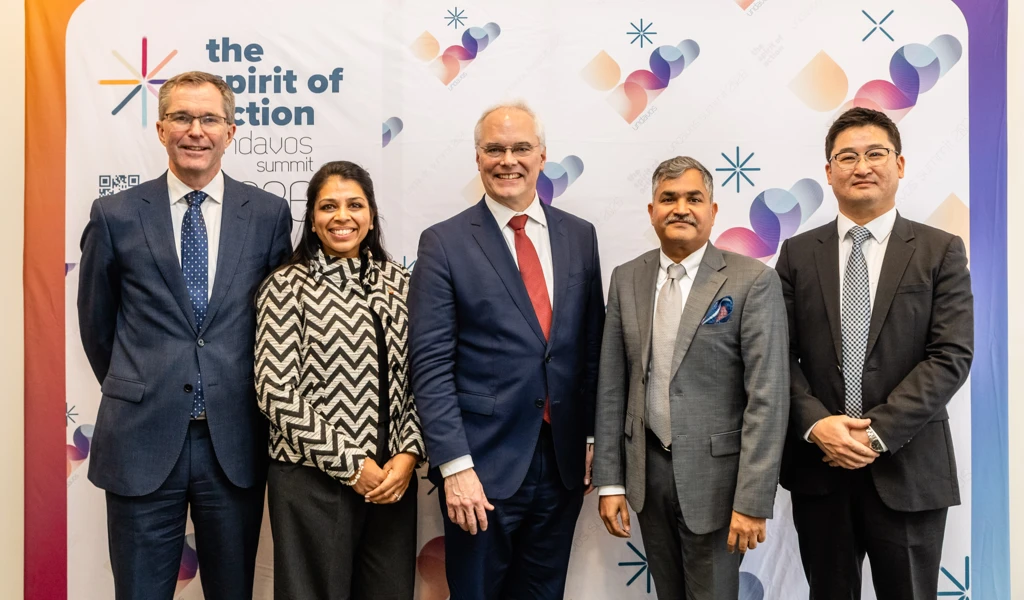CEPI awards contract worth up to US$12.5 million to consortium led by Wageningen Bioveterinary Research to develop a human vaccine against Rift Valley fever

Oslo, Norway, July 10, 2019—Wageningen Bioveterinary Research (WBVR), part of Wageningen University & Research, and the Coalition for Epidemic Preparedness Innovations (CEPI) hereby announce a new partnering agreement. With support from the European Union's (EU's) Horizon 2020 programme, CEPI will provide up to US$12.5 million for vaccine manufacturing, preclinical research, and a phase 1 study to assess the safety, tolerability, and immunogenicity of a single-dose vaccine candidate (RVFV-4s) against Rift Valley fever virus for use in humans. WBVR will lead a consortium of research, manufacturing, and clinical evaluation organisations to undertake this project.
To produce this vaccine candidate, researchers at WBVR have altered the genome of the Rift Valley fever virus in a way that significantly weakens it. This "attenuated" virus will be used as a vaccine to generate a lasting immune response against the disease. This investment is part of CEPI's third call for proposals, launched earlier this year with support from the EU's Horizon 2020 research and innovation programme under grant agreement No. 857934.
About Rift Valley fever
Rift Valley fever vaccines have already been used successfully to protect livestock, but currently none have been licenced for use in humans.
Rift Valley fever virus mainly affects people living in pastoral communities in low-income and middle-income countries. While the virus mostly infects humans through contact with the blood or organs of infected animals, there is a concern that it could also be transmitted from human-to-human by the Aedes aegypti mosquito, which could change its epidemiology considerably. In view of the epidemic threat posed by this disease, the WHO has classified it as a priority pathogen in need of urgent R&D investment.
Rift Valley fever kills about one in every hundred people infected. In people who develop the haemorrhagic form of the disease, the fatality rate is as high as 50%.
The virus was first identified in 1931 during an investigation into an outbreak among sheep on a farm in the Rift Valley of Kenya. Multiple outbreaks have since been reported across the African continent and on the Arabian Peninsula.
Between May and June, 2018, concurrent cases of Rift Valley fever were reported in farmers in South Africa and Kenya, nearly 5000 km apart. There is also an ongoing outbreak on the island of Mayotte, a French overseas territory in the Indian Ocean. As of May 13, 2019, 129 human and 109 animal cases of Rift Valley fever have been confirmed on the island.
With this strategic collaboration, CEPI acknowledges the concept of One Health, by bringing together veterinary and public health experts to fight an emerging virus that affects both animals and humans.
This emerging virus has shown its ability to expand its habitat and cause public health emergencies. We can and must develop a safe and effective human vaccine against this deadly virus to protect those people who are most at-risk and to improve global epidemic preparedness. We hope to achieve this goal through our partnership with Wageningen Bioveterinary Research.
About CEPI
CEPI is an innovative partnership between public, private, philanthropic, and civil organisations launched in Davos in 2017 to develop vaccines to stop future epidemics. CEPI has received multi-year funding from Norway, Germany, Japan, Canada, Australia, and the Bill & Melinda Gates Foundation, and Wellcome. CEPI has also received single-year investments from the Governments of Belgium and the United Kingdom. The European Union provides financial support for relevant projects through their Horizon 2020 programme as well as through the European and Developing Countries Clinical Trials Partnership. CEPI has reached over US$ 750 million of its $1 billion funding target. Since its launch in January 2017, CEPI has announced three calls for proposals. The first call was for candidate vaccines against Lassa virus, Middle East Respiratory Syndrome coronavirus (MERS-CoV), and Nipah virus. The second call was for the development of platforms that can be used for rapid vaccine development against unknown pathogens. The third call is for candidate vaccines against Chikungunya and Rift Valley fever viruses. To date, CEPI has committed to investing over US $380 million in 14 vaccine candidates (five against Lassa virus, four against MERS-CoV, three against Nipah virus, one against Chikungunya, one against Rift Valley fever) and three vaccine platforms to develop vaccines against Disease X. Learn more at CEPI.net. Follow us at @CEPIvaccines.
About the Vaccine Development Consortium
WBVR will lead the preclinical safety and efficacy evaluation of RVFV-4s vaccine candidate; BunyaVax BV will provide the vaccine technology, undertake project management and enabling science; IDT Biologika GmbH will manufacture the vaccine; TiHo RIZ, University of Veterinary Medicine Foundation, Research Centre for Emerging Infections and Zoonoses will undertake studies to establish correlates of protection. CR2O BV will coordinate the clinical trial; CEVAC Clinical Trial Unit of Ghent University Hospital will implement and sponsor the clinical trial; and CEVAC Immunomonitoring Laboratory of Ghent University will handle biological material.
About Wageningen Bioveterinary Research
WBVR, part of Wageningen University & Research, is an independent research institute and Contract Research Organization. The mission of WBVR is to contribute to welfare and prosperity by safeguarding animal and public health by prevention and control of infectious diseases. WBVR offers expertise and facilities for innovative research and development and preclinical studies.
Media contacts:
CEPI
Rachel Grant, Director of Communications, Advocacy and Resource Mobilisation: +44(0)7891249190 | [email protected]
Mario Christodoulou, Communications and Advocacy Manager: +44(0)7979300222 | [email protected]
Wageningen Bioveterinary Research
Annet Blanken, Communication Manager: +31 (0)320 238 678 | [email protected]


